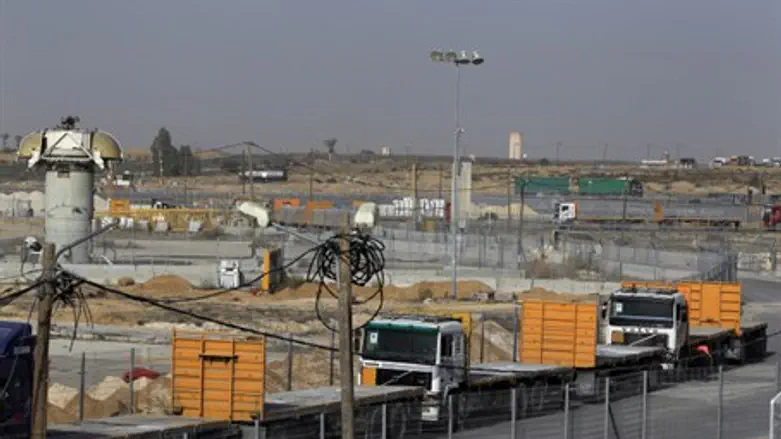
Hamas is once again trying to punish the residents of Gaza by attempting to reduce the scope of Israeli goods entering the region.
Hamas’ Ministry of Economics announced this week its decision to ban the import of certain types of goods into Gaza through the Israeli crossings. These include office furniture, various types of foods, hygiene products, gas pipes, plastic, plastic bags and clothing.
The local population in Gaza expressed its dissatisfaction with the decision, especially since the Israeli products that enter Gaza are considered to be of much higher quality than the goods that are smuggled into Gaza from Egypt, through the tunnels in the Rafiah area.
The Coordinator of Government Activities in Judea, Samaria and Gaza (COGAT) noted that this is part of an ongoing Hamas policy, which seeks to reduce imports from Israel and other external markets without analyzing the serious impact such decisions would have on the public and the population in Gaza.
Nevertheless, COGAT noted, on Wednesday 218 truckloads containing a variety of goods and 175 tons of gas were delivered into Gaza.
The trucks were delivered through the Kerem Shalom Crossing under the coordination of the Coordination and Liaison Administration in Gaza.
In addition, noted COGAT, 301 tons of strawberries, and 52,000 flowers units were exported from Gaza this week. The export was coordinated by the Gaza Coordination and Liaison Administration through the Kerem Shalom crossing.
Israel continuously allows humanitarian aid into Gaza, despite Hamas’s claims that there is a “siege” on the region. Israel has approved internationally funded and monitored projects in Gaza. Since 2011, 235 projects have been approved. In September 2012 alone, 16 new projects were approved.
Israel has also supported the private sector in Gaza, and has approved the transfer of raw materials for private sector construction, including roof tiles, building stones, dry wall, mosaics, adhesives, plaster, etc.
In addition to all of the above, the communication channels between Israel and the PA’s Ministry of Health have been maintained in recent years, despite Hamas’ violent takeover of Gaza in 2007. As part of this communication Israeli doctors have more than once helped save the lives of PA Arabs from Gaza who came to receive treatment in Israeli hospitals.
Angry at the PA-Israel cooperation, Hamas has prevented the transfer of Gaza patients to hospitals in Israel.
